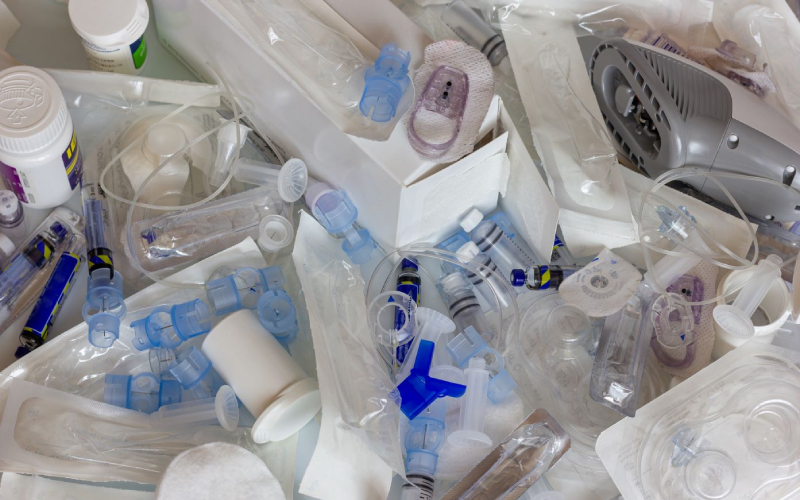Industrial waste recycling is the process of collecting, separating, and reusing materials that are generated as a by-product of industrial activities. This process involves the use of various methods, technologies, and processes to reuse materials in the most efficient and cost-effective way. Industrial waste recycling can help reduce the environmental impact of manufacturing and other activities, and can also help reduce costs for businesses. This article will discuss the benefits, challenges, and innovative solutions for waste recycling.
What Is Industrial Waste Recycling?
Industrial waste recycling is a process of collecting, separating, and reusing materials that are generated as a by-product of industrial activities. This process involves the use of various methods, technologies, and processes to reuse materials in the most efficient and cost-effective way. Industrial waste recycling can help reduce the environmental impact of manufacturing and other activities. And can also help reduce costs for businesses.

How Can Industrial Waste Be Recycled?
It can be recycled in a variety of ways. The most common methods include mechanical recycling, thermal recycling, chemical recycling, biological recycling, and energy recovery. Mechanical recycling involves the reuse of materials such as plastics, metals, glass, paper, and rubber. Thermal recycling involves the use of heat to break down materials and extract valuable resources. Chemical recycling involves the use of chemical processes to break down materials into simpler compounds that can be used to make new products. Biological recycling involves the use of microorganisms to break down and convert materials into usable resources. Energy recovery involves the use of energy sources such as heat, electricity, and steam to extract resources from waste materials.
Benefits Of Industrial Waste Recycling
Industrial waste recycling has a number of benefits. It can reduce the amount of waste sent to landfills, which can help reduce the environmental impact of manufacturing and other industrial activities. Recycling can also help reduce costs for businesses. As it eliminates the need to purchase new materials and reduces the amount of energy and resources required to create new products. Additionally, recycling can create new jobs and help stimulate local economies.
Challenges Of Industrial Waste Recycling
Although industrial waste recycling has many benefits, it also has some challenges. One of the biggest challenges is finding ways to make the process economically viable for businesses. Additionally, there are issues surrounding the transportation of waste materials and the availability of recycling facilities.
Innovative Solutions For Industrial Waste Recycling
In order to make industrial waste recycling more economically viable, businesses need to find innovative solutions. One of the most promising solutions is the use of waste-to-energy (WTE) technologies. WTE technologies use the heat generated from burning industrial waste to generate electricity or heat for buildings. This can help businesses to reduce their energy costs and reduce their environmental impact.
Other innovative solutions for industrial waste recycling include the use of advanced sorting technologies, such as optical sorting and robotic sorting systems. These systems can be used to sort materials more efficiently, reducing the time and resources required for manual sorting. Additionally, businesses can use technologies such as 3D printing to create new products from waste materials.
Different Types Of Industrial Waste Recycling Solutions
- Mechanical Recycling: This is the most common type of industrial waste recycling. It involves the reuse of materials from the original source. This is typically done through shredders, crushers, and other machinery that can break down the material into smaller pieces. The smaller pieces can then be used in other applications or can be sold as scrap.
- Chemical Recycling: This type of industrial waste recycling involves the reuse of chemicals from the original source. This can be done through the use of solvents, electrolysis, and other methods. The end result is often a new product that can be used in other applications.
- Thermal Recycling: This type of industrial waste recycling uses high temperatures to break down the material into smaller pieces. This is often done in a furnace or kiln and can create a variety of products such as metals, plastics, and composites.
- Biological Recycling: This type of waste recycling involves the reuse of living organisms and their byproducts. This is typically done through the use of composting, vermicomposting, and other methods.
Technologies Used In Industrial Waste Recycling
There are a number of technologies that can be used in industrial waste recycling. These include mechanical recycling, thermal recycling, chemical recycling, biological recycling and energy recovery. Additionally, businesses can use advanced sorting technologies, such as optical sorting and robotic sorting systems, and 3D printing to create new products from waste materials.
Other Considerations For Industrial Waste Recycling
When implementing industrial waste recycling, businesses need to consider a number of other factors. These include the cost of the recycling process, the availability of recycling facilities, and the transportation of waste materials. Additionally, businesses need to ensure that the recycling process is safe and that it meets all applicable environmental regulations.
Conclusion
Industrial waste recycling is an important process for reducing the environmental impact of manufacturing, and for reducing costs for businesses. This process involves the use of various methods, technologies, and processes to reuse materials in the most efficient and cost-effective way. Additionally, businesses need to consider a number of other factors, such as the cost of the recycling process, the availability of recycling facilities, and the transportation of waste materials. Innovative solutions such as waste-to-energy technologies, advanced sorting technologies, and 3D printing can help businesses to make waste recycling more economically viable.

Kurtis Marsh is a technology enthusiast and internet entrepreneur based in Georgia. He has been writing about technology for over 4 years, with a focus on security, privacy, and emerging trends. He enjoys exploring and experimenting which has led him to experiment with various coding projects and software applications. His passion for technology analysis has allowed him to develop his skills and help him give advice on the best new products. He is always looking for the latest information to bring to his readers.




